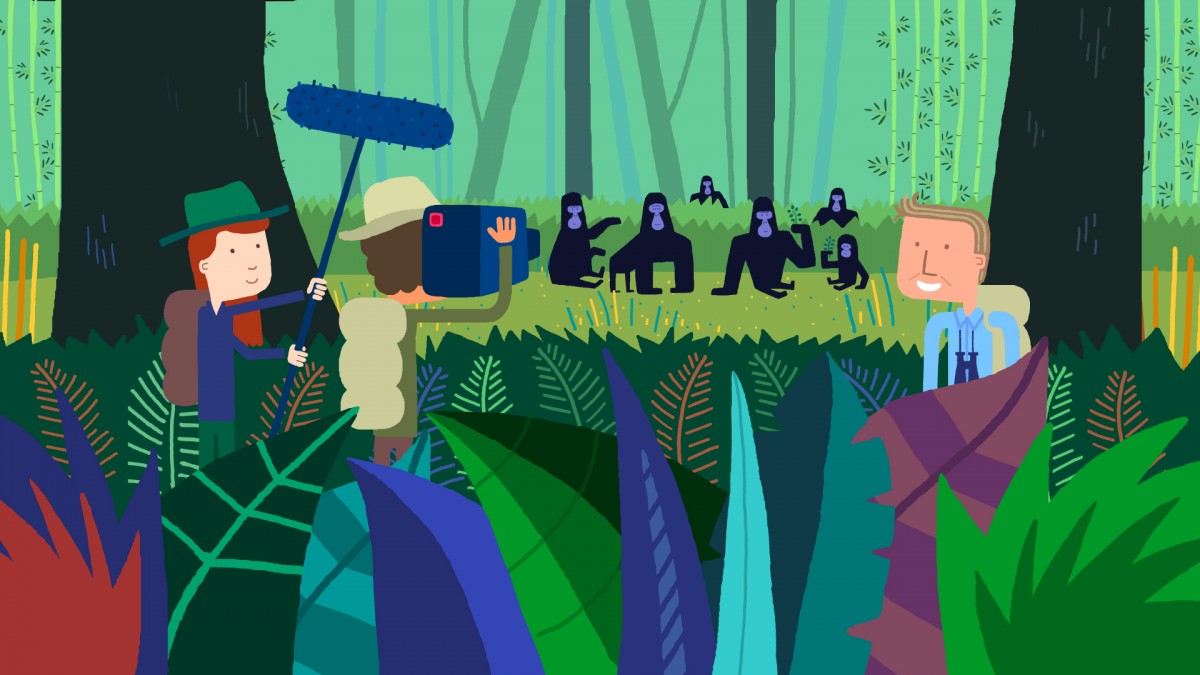This week's top TV: 4 - 10 December
Food: Nigella: at My Table
Monday
8.30pm, BBC2


Wildlife cinematographer Sophie Darlington (the BBC’s Planet Earth II and documentary feature African Cats) and director of photography Christopher Titus King, who straddles the documentary (BBC One’s Seven Ages of Britain) and drama (the History mini-series, The Bible) genres, discussed camerawork at the RTS Craft Skills Masterclasses.
Like an entire generation of wildlife film-makers, Alastair Fothergill was drawn to television by David Attenborough. His 1979 series, Life on Earth, showed the young Fothergill that natural history programming was “a good way to be paid to be near animals”.
Fothergill, who was recently made a Fellow of the RTS, spent almost three decades at the BBC Natural History Unit (NHU). This included a five-year stint as head of department, when he landed several global hits, including The Blue Planet, Planet Earth and Frozen Planet.

Sir David Attenborough will narrate the series, which will re-visit various stages of the wildlife presenter's life, from his early days filming Zoo Quest in the 1950s up to his 2016 virtual reality Attenborough and the Giant Dinosaur.
The successor to the award-winning Blue Planet from BBC Studios Natural History Unit follows the huge success of last year's Planet Earth II, also presented by Attenborough.
The seven-part documentary series has been four years in the making, with a team of wildlife filmmakers exploring the hidden depths of the earth's oceans for the return of the unique visual experience.
Sir David Attenborough said he was "truly thrilled to be joining this new exploration of the underwater worlds which cover most of our planet, yet are still its least known.”
"Mists and mellow fruitfulness” means festival season in Bristol. This is when the city’s creative sector comes together to celebrate its talent and share a sense of belonging.
A festival is all about entertainment. Those festivals with a specific focus on cultural groups often seek to inform community members of their traditions and involve elders who share stories and experiences.
That couldn’t be a more fitting description for the creative-industry family that calls Bristol home.
The festival – held at the Watershed, Bristol on 1 November – gave students the opportunity to meet local indies such as RDF West, Silverback Films and Tigress Productions, as well as BBC Bristol Popular Factual, ITV News West Country and post-production houses.
In a buzzing atmosphere and to the backdrop of a DJ, students were encouraged to chat to the experts – from shooting researchers and production journalists to managing directors – and ask for advice on how to break into the industry.
The schedule includes BBC One's Attenborough And The Giant Sea Dragon, a one-off special exploring Britain's Jurassic Coast and the recent discovery of gigantic fossils embedded in a cliff face.
Natural history icon Sir David Attenborough will use the latest scanning techniques and 3D imaging to bring back to life the ichthyosaur, and reveal more about the ocean predator's way of life.
The six-part series comes ten years after Planet Earth redefined history filmmaking.
It will use state-of-the-art technology to help tell the story of our natural world, visiting jungles, deserts, grasslands and cities, and look at how animals survive within them.
Speaking about the new series, Attenborough, who this year celebrates his ninetieth birthday, said: “I am very excited to once again be working with the Natural History Unit on its latest landmark series and am especially looking forward to getting out on location in the next month or so.”
Scott, the son of Antarctic explorer Captain Scott, presented the BBC’s first ever natural history programme live from his studio lounge in Slimbridge, Gloucestershire in Mary 1953.
Today Slimbridge is a centre for science and conservation, and was opened to the public by Scott in 1946 to allow people to get closer to nature and promote the conservation of Britain’s wetlands and wildlife.